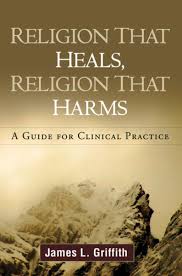
Religious Trauma
Religion That Heals, Religion That Harms
by James Griffith (2010)
This book helps clinicians to intervene effectively in situations where religion is causing harm. Vivid examples illustrate how religious beliefs and practices may propel suicide, violence, self-neglect, or undue suffering in the face of medical or emotional challenges. Griffith also unravels the links between psychiatric illness and distorted religious experience.
Cult Recovery: A Clinician's Guide to Working with Former Members and Families
By Lorna Goldberg, Michael Langone (2017)
This landmark, 500-page book, with chapters from leading clinicians and researchers, describes the current state of the art in helping people adversely affected by a cultic dynamic, whether in a cult, mainstream religious denomination, psychotherapy, family, or other interpersonal relationship.
Transcendental Deception
by Aryeh Siegel (2018)
Author Aryeh Siegel was first introduced to TM in the early 1970s. What started off as a casual interest in meditation to relieve stress, morphed into an all-encompassing way of life for nearly ten years. Siegel became a TM teacher but over time, became disillusioned with both TM meditation and the TM organization for promoting overstated claims and deceptive practices.
The Book of Separation
by Tova Mirvis (2017)
Mirvis was raised in an orthodox Jewish community, but over the years, her doubts became noisier than her faith. Even though it would mean the loss of her community, and possibly even her family, she strikes out on her own to discover what she does believe and who she really is. A beautiful memoir about what lies beyond a loss of faith.
Practice and All Is Coming
by Matthew Remski (2019)
Through dogged investigative work, careful listening to survivor stories of assault and abuse, and close analysis of the cultic mechanisms at play in the sphere of Pattabhi Jois’s Ashtanga community.The book offers a sober view into a collective and intergenerational trauma, as well as a clear pathway forward into enhanced critical thinking, student empowerment, self-and-other care, and community resilience.




